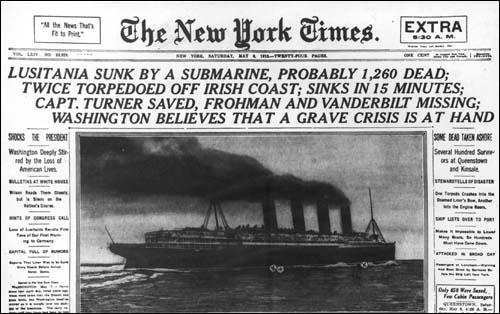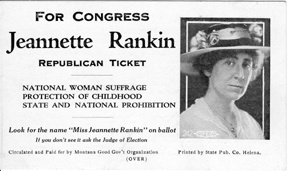One Hundred years ago today President Woodrow Wilson asked Congress to declare war on Germany. The war had been raging for more than thirty months across the globe making it, as it was called, the Great War. Or the World War: taking conflict into Southwest Africa then East Africa, to the Sinai Peninsula, the Gallipoli Peninsula and to the Falkland Islands. But so far there was nothing great about it except for its insatiable demand for lives.

It was the loss of life, American lives, which brought Mr. Wilson to the Capitol to speak to Congress for the fourth time in three months. In December 1916 the German High Command debated resuming unrestricted submarine warfare against the Entente Powers. The Entente had its own very effective surface blockade of Germany. Therefore leaving no doubt that if the neutral world wanted to trade, it would trade with Britain and France.
Trade with the Entente, specifically Britain, had brought the United States out of recession by 1915. American ships were plying the waves toward all ports as a neutral nation in the first years of the war. American ships bound for Germany were boarded and turned back by the Royal Navy, which brought friction between the two Atlantic powers. Germany, however, had its submarines. In February 1915, it announced it would use them around the British Isles, even on ships from neutral nations.
Submarines strike
But it was the sinking of a British ship, RMS Lusitania, and the 128 Americans who went down with it that brought America to the brink of war with Germany in May 1915. President Wilson warned Germany that it was the right of Americans, and all neutrals, to travel in commercial vessels without fear of surprise attack by submarines. Likewise, he warned Germany that the next unprovoked attack would signal hostilities. However, it was the loss of another British liner, SS Arabic, and three more American lives that August which caused the U-boats to stand down.

Sixteen months later Germany announced the resumption of submarine attacks effective February 1, 1917. Wilson already spoke in Congress of his resolve to arm American merchant vessels with US Naval gunners. Five American ships were lost in March alone. On just the day before Wilson’s speech, the German submarine U-46 torpedoed another American vessel, SS Aztec, off the French coast. Twenty-eight aboard the Aztec died, including one of the US Navy gunners protecting it, Boatswain’s Mate First Class John Eopolucci. Consequently BM 1CL Eopolucci was the first American serviceman to die in Europe in World War I.
Wilson Addresses Congress
A clearly exasperated President Wilson stood before a joint session in the well of the House on April 2nd. (You can read the speech here.) He laments the innocent lives lost and the degradation of law among nations. We should not be surprised that he thought submarines were an abomination; murderers unwilling to show themselves even as they strike. “The present German submarine warfare against commerce is a warfare against mankind.”

Wilson, before and after the speech, was an idealist. He wants supranational instruments and assemblies to preserve a law-abiding, democratic world. But on April 2 he comes to the conclusion that the world is on fire; and the fire is imperial German aggression. It must be put out. The United States must go to war to put it out.
In asking for war, Wilson is turning his back on a key American principle avoiding European conflicts and alliances. This notion was as old as the republic itself, part of its DNA. (More on that by journalist David M. Shribman here.)
Above all, Wilson is arguing for a new role for America in a new century. Recently the United States had surpassed Great Britain as an industrial power. A transcontinental power, it was building a two-ocean navy with the goal of becoming a Pacific power. Was the United States ready to step up to becoming a world power?
It was up to Congress.
Interestingly, Wilson addressed the room as “Gentlemen”, overlooking Rep. Jeannette Rankin who that year had become the first woman member of Congress. Wilson should have been more inclusive in his remarks. The Republican from Montana voted against the war.

